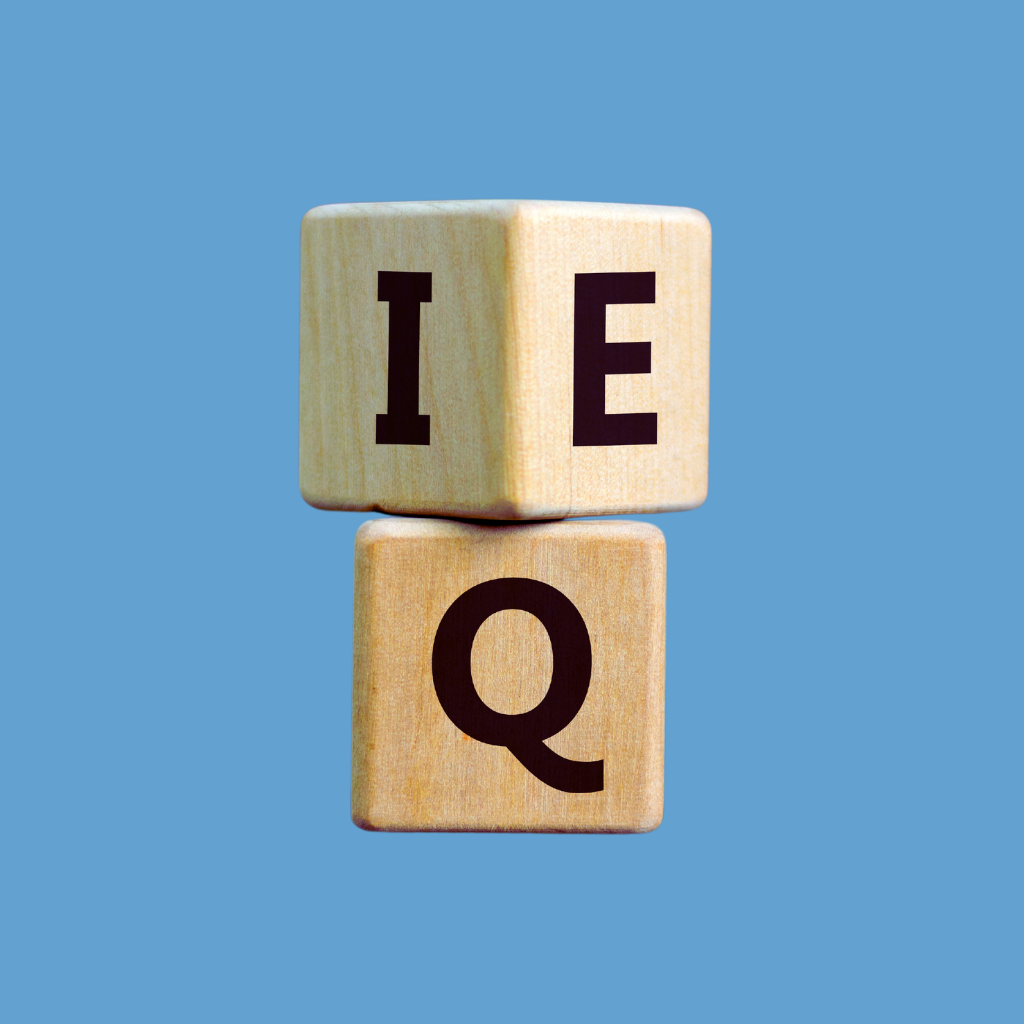In this article, we’ll dive deep into how to develop emotional intelligence and leverage it for both personal and professional success.

What is Emotional Intelligence (EQ)
Emotional Intelligence is the capacity to identify, comprehend, regulate, and impact emotions, both in yourself and in others. The term was popularized by psychologist Daniel Goleman, who broke emotional intelligence down into five key components:
– Self-awareness– The ability to identify and comprehend your own emotions.
– Self-regulation – the ability to manage and regulate your emotions effectively.
– Motivation – being driven to achieve goals for reasons beyond external rewards.
– Empathy – the ability to understand the emotions of others.
– Social skills – the ability to build relationships, communicate effectively, and manage conflicts.
Why is Emotional Intelligence Important?
In our rapidly evolving world, having a high IQ alone is no longer sufficient. Being emotionally intelligent allows individuals to:
– Handle stress more effectively.
– Build stronger relationships with peers, colleagues, and family members.
– Communicate more effectively, both in personal and professional settings.
– Navigate conflicts and misunderstandings with grace and diplomacy.
– Foster leadership skills, making you a more effective and empathetic leader.
Let’s now explore how you can actively boost your emotional intelligence to unlock your full potential.
1. Cultivate Self-Awareness
Self-awareness is the cornerstone of emotional intelligence. Without an accurate understanding of your own emotional state, it becomes impossible to regulate or manage those emotions. Here’s how to cultivate self-awareness:
– Journal daily: Writing about your emotions and how certain events made you feel can increase your awareness of emotional triggers.
–Mindfulness meditation: Practicing mindfulness helps you stay in the moment and identify emotions as they arise.
– Seek feedback: Ask close friends, family members, or colleagues for honest feedback on how you handle situations emotionally.
By taking time to reflect on your thoughts and feelings, you will build a stronger foundation of emotional awareness, which is crucial for further development.
2. Practice Self-Regulation
Once you’ve gained insight into your emotions, the next step is learning how to regulate them. Self-regulation is the ability to control impulsive behaviors and respond to emotions in a healthy and constructive way.
Some techniques to enhance self-regulation include:
– Take a pause: When faced with an emotionally charged situation, take a few moments to breathe and reflect before reacting. This reduces impulsive reactions.
– Reframe your thoughts: Change negative thinking patterns by reframing situations. For example, instead of seeing challenges as threats, view them as opportunities for growth.
– Adopt stress-relief techniques: Yoga, deep breathing exercises, and regular physical activity can help you manage stress more effectively.
By consistently practicing these techniques, you’ll improve your ability to respond thoughtfully rather than react impulsively.
3. Strengthen Your Motivation
Motivation within emotional intelligence is not about external rewards but rather about being driven by internal passion and commitment. Emotionally intelligent individuals are highly motivated to achieve personal goals, driven by a deeper purpose.
Here are ways to build intrinsic motivation:
– Set meaningful goals: Ensure your goals are aligned with your personal values and passions, which will make them more fulfilling.
– Focus on long-term vision: Keep the bigger picture in mind to stay motivated during challenging times.
– Celebrate small wins: Recognize and reward your progress along the way to maintain momentum and motivation.
By strengthening your motivation, you not only achieve personal success but also inspire those around you.
—
4. Enhance Your Empathy
Empathy is the ability to understand and share the feelings of others. Developing empathy is a key aspect of emotional intelligence, as it fosters better relationships and more compassionate interactions.
To cultivate empathy:
– Listen actively: Pay full attention to the speaker without interrupting, and validate their emotions by acknowledging their feelings.
– Ask open-ended questions: Encourage others to share their thoughts and emotions by asking thoughtful, open-ended questions.
– Put yourself in their shoes: Practice seeing situations from another person’s perspective, especially during disagreements or conflicts.
The more empathetic you become, the better you will be at forming strong, trust-filled relationships, both personally and professionally.
5. Sharpen Your Social Skills

Social skills are essential for anyone looking to thrive in interpersonal relationships or leadership roles. Emotionally intelligent people tend to be excellent communicators and are adept at managing teams and navigating conflicts.
Here are some tips to enhance your social skills:
– Be an active listener: Engage in conversations by truly listening and responding thoughtfully to others.
– Manage conflicts gracefully: Approach conflicts with a solution-oriented mindset, aiming for win-win outcomes.
– Communicate clearly: Strive for clarity in your communication to minimize misunderstandings and ensure your message is received as intended.
Strong social skills not only lead to better teamwork but also enhance your ability to influence and inspire others, which is crucial in leadership roles.
6. Build Resilience
Being emotionally intelligent requires the ability to bounce back from setbacks. Resilience is the ability to adapt well in the face of adversity, failure, or significant stress.
To build resilience:
– Develop a growth mindset: Believe that your abilities and intelligence can be developed through effort and practice.
– Maintain a positive outlook: Focus on solutions instead of dwelling on problems.
– Surround yourself with supportive people: Build a strong support network to help you navigate tough times.
By cultivating resilience, you not only improve your emotional intelligence but also enhance your ability to thrive in challenging environments.
7. Continuous Learning and Growth
Emotional intelligence is not a static trait. It can be developed and expanded through continuous learning. The more you learn about yourself and others, the better you will become at managing emotions and relationships.
– Attend workshops or seminars: Learning from experts in emotional intelligence can provide you with new techniques and strategies.
– Read books on emotional intelligence: Stay updated on the latest research and best practices in the field.
– Practice emotional intelligence daily: Put the techniques you learn into practice every day to solidify your growth.
By committing to continuous learning, you ensure that your emotional intelligence remains sharp and up-to-date.
Conclusion
Developing emotional intelligence is a lifelong journey that requires self-reflection, practice, and dedication. By enhancing your self-awareness, self-regulation, motivation, empathy, and social skills, you position yourself for success in all areas of life. Whether you are looking to excel in your career or build stronger personal relationships, boosting your EQ will provide you with the emotional tools necessary to navigate life’s complexities.